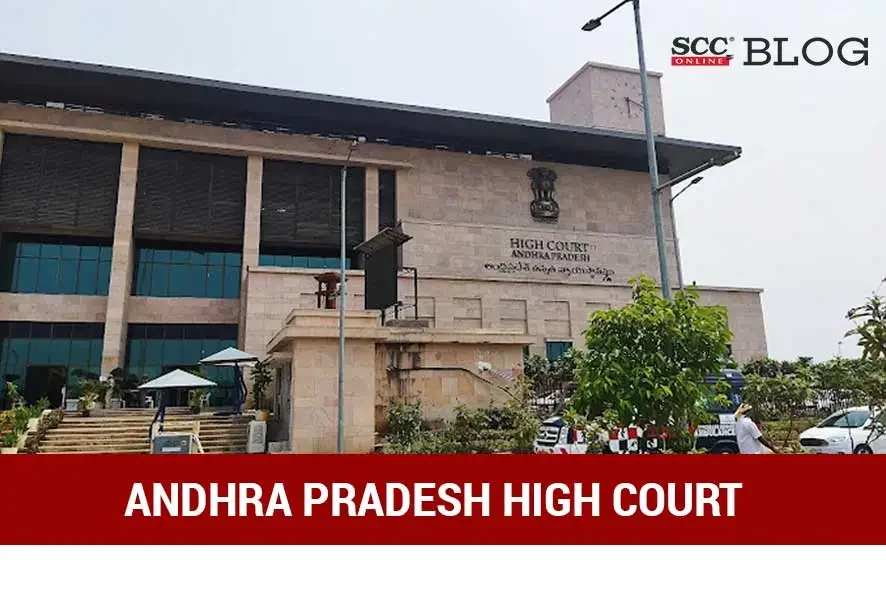Andhra Pradesh High Court: In a case wherein, the writ petition was filed by the petitioner to challenge the order passed by Andhra Pradesh Administrative Tribunal (‘the Tribunal'), Ravi Nath Tilhari*, K. Manmadha Rao, JJ., opined that even if it was found that the second wife did not acquire the status of wife, still for the service benefits and service claims of the deceased husband, she was entitled for protection.
Background
The petitioner married her late husband on 9-6-1975 as per Christian rites and customs. The late husband of the petitioner worked as warden in the office of District Social Welfare, Respondent 3 and he retired on 30-06-2011 and later expired on 17-10-2014, leaving behind the petitioner as his legally wedded wife and a son as his legal heirs. The petitioner approached Respondents 1-4 to claim the retirement and other terminal benefits and came to know that the Respondent 5, being nominee of the late husband of the petitioner, was also claiming family pension.
The late husband of the petitioner filed a case seeking divorce against the petitioner and during its pendency, he died which resulted into the dismissal of the case. Even in divorce petition, any marriage with Respondent 5 was not mentioned.
The petitioner contended that she was the only legally wedded wife and only widow entitled to receive all the service benefits on the death of her husband. The petitioner's husband also never obtained any permission from the competent authority in the service department, for the alleged second marriage with the Respondent 5 at any time as per the Andhra Pradesh Civil Services (Conduct) Rules, 1964 (‘1964 Rules'). Thus, the petitioner contended that the second marriage was null and void and Respondent 5 did not acquire any status of wife.
The petitioner filed an application before the Tribunal and questioned the inaction of the Respondent 1-4, with direction to release the pending and all other benefits and amounts payable to the petitioner due to death of her husband.
The Tribunal placed reliance on the Rule 50 of Andhra Pradesh Revised Pension Rules, 1980 (‘1980 Rules') and opined that both the petitioner and Respondent 5 was entitled for the family pension and retirement benefits.
Thus, the petitioner filed the writ petition to challenge the order passed by the Tribunal.
Analysis, Law, and Decision
The Court referred to Vidhyadhari v. Sukhrana Bai, (2008) 2 SCC 238 and Tulsa Devi Nirola v. Radha Nirola, 2020 SCC OnLine SC 283 and opined that, even if it was found that the second wife did not acquire the status of wife, for the marriage contracted during the subsistence of the first marriage, still for the service benefits and service claims of the deceased husband, she was entitled for the same.
The Court further opined that Court's endeavour had always been to balance the equities amongst two wives though the second might not be understood in the strict sense as a legally wedded “wife”.
The Court relied on Circular Memo dated 11-9-1996 and opined that if the government employee contracted second marriage with permission of the competent authority, such wife would have legal status for all purposes for receiving family pension along with the first wife and the children of the first wife, in terms of sub-rule (6) of Rule 50 of the 1980 Rules.
The Court relied on Badshah v. Urmila Badshah Godse, (2014) 1 SCC 188 and opined that the object of providing family pension to wife after the death of the husband could not be different from the object of providing maintenance during lifetime of the husband in case of divorce.
The Court further opined that intention of Rule 50 of the 1980 Rules was to give relief to the woman becoming wife. Under such circumstances, even the wife from the second marriage was made entitled for family pension as the main object of the Rule 50 was to give family pension to ‘wives'.
Thus, the Court while allowing the petition in part, modified the Tribunal Order stating that arrear towards maintenance granted to the petitioner during the lifetime of and against, the deceased, should go to the petitioner. Further, the due towards the service benefits, including the claim for medical bills of the deceased would go to Respondent 5. Moreover, with respect to the family pension, both the petitioner and Respondent 5 should be entitled to equal shares.
[Gaddam Ruth Victoria v. State of Andhra Pradesh, 2023 SCC OnLine AP 1690, decided on 18-08-2023]
*Judgment by Justice Ravi Nath Tilhari
Advocates who appeared in this case :
For the Petitioner: Sreemannarayana Vattikuti, Advocate;
For Respondents: GP for Services-II; Satish Kumar, Advocate







